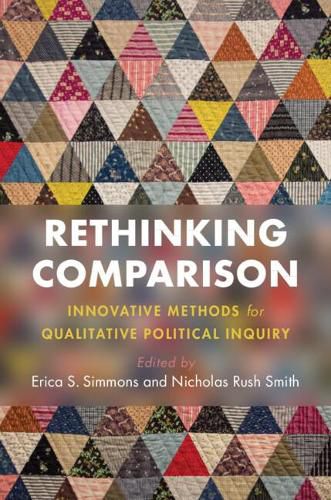Readings Newsletter
Become a Readings Member to make your shopping experience even easier.
Sign in or sign up for free!
You’re not far away from qualifying for FREE standard shipping within Australia
You’ve qualified for FREE standard shipping within Australia
The cart is loading…






Qualitative comparative methods - and specifically controlled qualitative comparisons - are central to the study of politics. They are not the only kind of comparison, though, that can help us better understand political processes and outcomes. Yet there are few guides for how to conduct non-controlled comparative research. This volume brings together chapters from more than a dozen leading methods scholars from across the discipline of political science, including positivist and interpretivist scholars, qualitative methodologists, mixed-methods researchers, ethnographers, historians, and statisticians. Their work revolutionizes qualitative research design by diversifying the repertoire of comparative methods available to students of politics, offering readers clear suggestions for what kinds of comparisons might be possible, why they are useful, and how to execute them. By systematically thinking through how we engage in qualitative comparisons and the kinds of insights those comparisons produce, these collected essays create new possibilities to advance what we know about politics.
$9.00 standard shipping within Australia
FREE standard shipping within Australia for orders over $100.00
Express & International shipping calculated at checkout
Qualitative comparative methods - and specifically controlled qualitative comparisons - are central to the study of politics. They are not the only kind of comparison, though, that can help us better understand political processes and outcomes. Yet there are few guides for how to conduct non-controlled comparative research. This volume brings together chapters from more than a dozen leading methods scholars from across the discipline of political science, including positivist and interpretivist scholars, qualitative methodologists, mixed-methods researchers, ethnographers, historians, and statisticians. Their work revolutionizes qualitative research design by diversifying the repertoire of comparative methods available to students of politics, offering readers clear suggestions for what kinds of comparisons might be possible, why they are useful, and how to execute them. By systematically thinking through how we engage in qualitative comparisons and the kinds of insights those comparisons produce, these collected essays create new possibilities to advance what we know about politics.